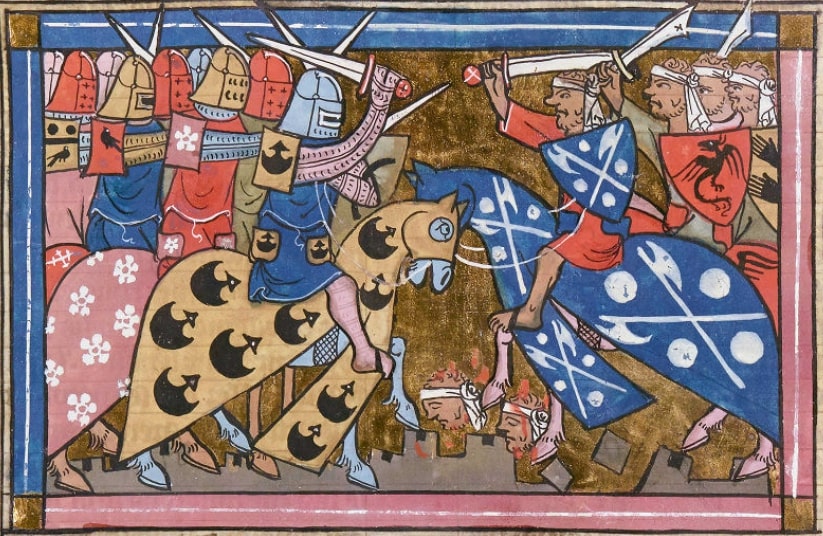 the annals of medical history, few names evoke as much intrigue and controversy as Mary Mallon. Dubbed “Typhoid Mary,” she gained notoriety as the first asymptomatic carrier of typhoid fever in the United States. Placed in forced quarantine for a staggering 23 years, Mallon’s story raises questions about public health, personal liberties, and the ethical dimensions of disease containment. In this article, we delve into the extraordinary life of Mary Mallon, exploring the circumstances that led to her quarantine, the implications of her case, and the lasting impact on public health policies.
the annals of medical history, few names evoke as much intrigue and controversy as Mary Mallon. Dubbed “Typhoid Mary,” she gained notoriety as the first asymptomatic carrier of typhoid fever in the United States. Placed in forced quarantine for a staggering 23 years, Mallon’s story raises questions about public health, personal liberties, and the ethical dimensions of disease containment. In this article, we delve into the extraordinary life of Mary Mallon, exploring the circumstances that led to her quarantine, the implications of her case, and the lasting impact on public health policies.
The Typhoid Outbreak and the Discovery of an Asymptomatic Carrier
In the early 20th century, an outbreak of typhoid fever occurred in New York City, perplexing health officials who were unable to identify the source of the disease. Enter Mary Mallon, an Irish immigrant working as a cook for affluent families. It was determined that Mallon, although never showing symptoms of typhoid fever herself, was an asymptomatic carrier, spreading the disease through her work.
The discovery of Mallon as an asymptomatic carrier was a groundbreaking revelation in the field of public health. It highlighted the concept of healthy carriers, individuals who harbor infectious diseases without exhibiting any symptoms. This realization raised questions about the transmission of diseases and the need for containment measures.
The Controversial Quarantine of Mary Mallon

Following her identification as a carrier, Mary Mallon faced a controversial fate. In 1907, health officials forcibly quarantined her on North Brother Island, an isolated location in New York’s East River. Despite her objections, Mallon was held against her will for a staggering 23 years.
The decision to place Mallon in quarantine stirred debates about personal liberties and the role of the state in controlling infectious diseases. Critics argued that Mallon’s imprisonment violated her rights, as she had never shown symptoms or intentionally harmed others. Supporters of the quarantine, on the other hand, emphasized the potential risks posed by asymptomatic carriers and the need to protect public health.
Legacy and Impact on Public Health Policies
Mary Mallon’s case had a profound impact on public health policies and disease containment strategies. Her situation brought attention to the importance of identifying and monitoring carriers of infectious diseases, even if they are asymptomatic. The concept of “Typhoid Mary” became a cautionary tale, prompting authorities to implement stricter regulations and surveillance measures.
In the aftermath of Mallon’s quarantine, public health departments established guidelines for tracking carriers and enforcing isolation measures when necessary. These policies aimed to strike a balance between protecting public health and respecting individual rights, a delicate task that continues to challenge healthcare systems to this day.
Lessons Learned and Ethical Considerations
The story of Mary Mallon raises important ethical considerations regarding disease control and individual liberties. It serves as a reminder that the intersection of public health and personal rights requires careful navigation. Balancing the need to protect society from infectious diseases with the preservation of individual autonomy remains a complex challenge.
Mallon’s case also underscores the importance of education and awareness in preventing the spread of diseases. It highlights the need for continued research into asymptomatic carriers and the development of effective strategies to identify, monitor, and educate individuals who may unknowingly transmit infectious diseases.
Mary Mallon’s 23-year quarantine as “Typhoid Mary” continues to captivate and intrigue. Her case shed light on the complexities of disease transmission and the ethical dilemmas surrounding disease control measures. While her story serves as a cautionary tale, it also serves as a catalyst for improving public health policies and understanding the delicate balance between protecting society and respecting individual rights. Mary Mallon’s legacy reminds us of the ongoing challenges in the realm of infectious diseases and the importance of evidence-based strategies to safeguard public health.
Avid Writer with invaluable knowledge of Humanity!
Upcoming historian with over 30 million views online.
“You make your own life.”





